
Protein bars can seem amazing. They’re this tiny snack that often tastes fantastic, is packed with protein, and may keep you satisfied for hours (if you choose the right one). Some of them may even taste exactly like a candy bar. Pretty exciting, right? All the flavor of a sweet treat, in something that will improve your health. That’s what the marketing suggests anyway. So are protein bars good for you?
Let’s be realistic. There’s no denying that some of them simply cannot be. Some even manage to contain more sugar than protein, while being heavily processed and packed with additives at the same time.
Others are much better. They keep the sugar content low, provide plenty of protein, and even contain many essential nutrients.
This is why you’ll see the most benefits by focusing on the best protein bars, the ones that make wise choices about ingredients and keep processing to a minimum. We’ll talk about how to find those protein bars towards the end of the post.
Before that, we need to look more closely at the pros and cons. You see, even the healthiest protein bars have some issues. This is even true for plant-based protein bars and products that avoid sugar entirely.
To get the most out of protein bars, it’s important to understand what they can do for you and what they can’t.
Are Protein Bars Good For You?
- What Protein Bars Offer
- Benefits Of Protein Bars
- How Protein Bars Could Be Harmful?
- Can Protein Bars Replace Meals?
- How To Choose The Best Protein Bars
- Do You Need The Protein?
- Final Thoughts
What Protein Bars Offer
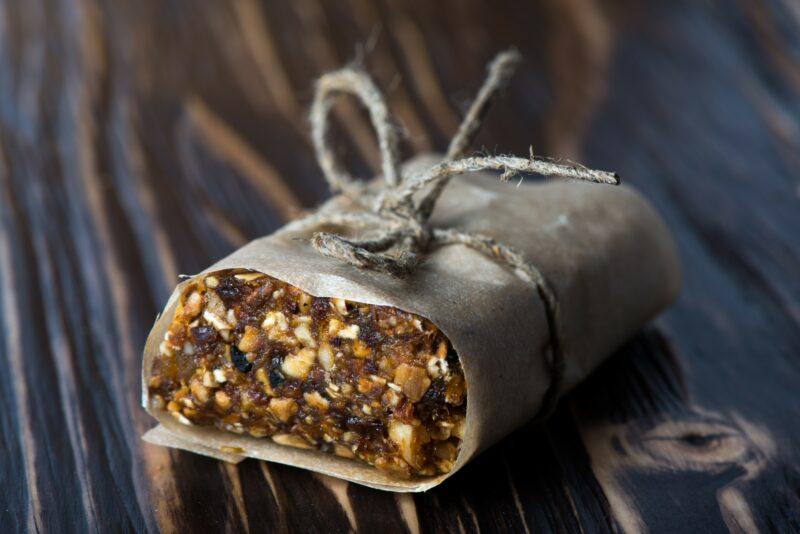
Protein bars vary hugely in their nutritional profile, the ingredients they use, their size, their flavor, and more. Honestly, sometimes they don’t have much in common at all, beyond the fact that they contain protein and are in the form of a bar.
With so many differences, it’s important to think carefully about what you want from your protein bar before you begin. Checking out the nutrition label is essential too, as some protein bars are quite different than you might expect.
The Protein
Protein bars often have between 10 and 20 grams of protein. However, some sports-focused ones ramp the protein content even higher, offering around 25 or 30 grams of protein per serving.
Less nutritious bars may skimp on the protein, sometimes giving you less than 10 grams of protein per bar.
The protein can come from any number of sources. Some brands rely on nuts and seeds, while others may use protein powder, such as whey protein or perhaps a plant-based protein powder like soy.
Other Macronutrients
Protein bars all contain protein, but that’s where the similarities end. Some of them are pretty high in fat, particularly if you turn to a keto-friendly product. Others keep the fat content low instead.
The same is true for carbs. Some products are carb heavy, often relying on grains for nutrition and texture, plus sugar for sweetness.
Others keep the carbs low. They may use natural sweeteners like stevia instead of sugar or even turn to artificial options, such as sucralose.
Fiber varies too. Despite the importance of this macronutrient, many products don’t focus on it at all and only give you a gram or two.
High fiber products are better, but only to a certain extent. You see, the fiber source can vary too, and simply adding extra fiber to a protein bar isn’t always the healthiest approach.
Calorie Content
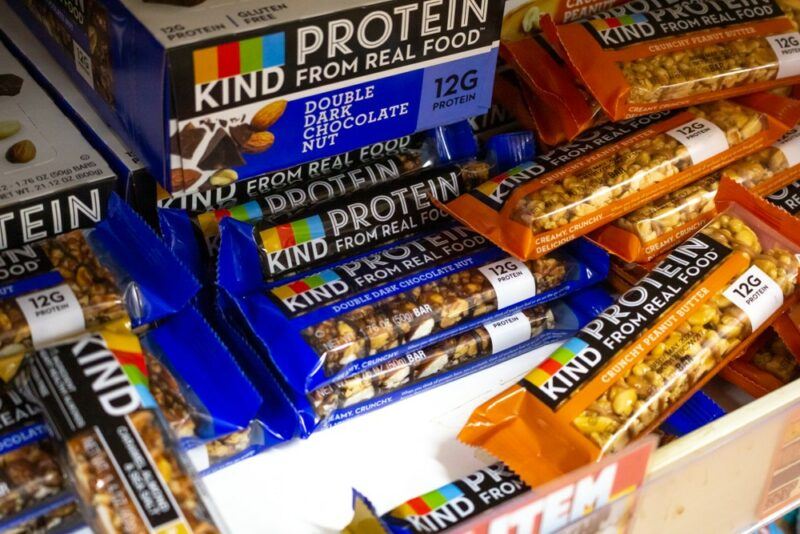
The variation in calorie content is huge. Some bars contain somewhere between 90 and 150 calories, making them appealing as snacks and for anyone wanting to lose weight. However, these ones are often on the low end for protein too.
Other products range from 200 calories to 400 or perhaps even beyond. Some of the high calorie products are still healthy enough if you have them instead of a meal. However, others are high in calories due to sugar or too much fat.
Nutrients
Finally, we need to talk about nutrients. There’s huge variation here as well, partly because protein bars vary so much in their ingredients.
Some companies also add nutrients. This is particularly common in meal replacement protein bars, as the company hopes to give you similar nutrition to what you’d get in an actual meal.
Benefits Of Protein Bars
They Provide Extra Protein
The main benefit of protein bars is obvious from the name, they provide you with extra protein. This is an exciting feature, given that protein is so essential for our health.
Think of it this way. Our bodies rely on proteins for everything. Proteins are in our immune system, our muscles, our skin, and our hormones. They also help make sure reactions happen as they should and provide a connective framework throughout our body.
We are protein, essentially. To function well, we need to get protein from our diet, break it down, then use it to build exactly what we need.
Most of us are already hitting our basic protein targets without effort. If we weren’t, we’d be hungry all the time. However, sometimes you need to go beyond basic survival needs. If you’re trying to lose weight, gain muscle mass, or are recovering from an illness, you may need extra protein.
What could be easier than a protein bar?
Protein Bars Are Practical
Protein isn’t hard to find. There are countless protein rich foods, including meat, eggs, and legumes.
The problem is that most protein sources require some prep work (there are a few exceptions to that rule, like nuts and pre-prepared protein shakes, but not many). The prep work can be frustrating.
What if you need protein now but don’t want to prepare a meal? Protein bars fill that gap. They’re already prepared, are shelf-stable and don’t take much time to eat either.
There’s Endless Variety
These days you can either buy or make almost any variation of protein bars imaginable. This means you can find a protein bar to meet most sets of needs – without much difficulty at all.
You can even buy paleo or keto paleo bars at stores now, not to mention protein bars that are nut free, soy free, sugar free, or free from whatever else worries you.
The bars aren’t all highly processed either. Some companies make minimally processed ones that use whole food ingredients.
There’s also variation in textures and flavors. So, even if you’re fairly picky, you should be able to find some bars you enjoy.
If you can’t find the exact combination of features you want, don’t worry, there is an endless selection of protein bar recipes out there (seriously, a quick Google search will give you hundreds of options). You can easily make your own protein bar to whatever standards you’re interested in.
They May Help You Lose Weight

Protein bars are often used for weight loss and work well for some people. Basically, the bar’s protein helps keep you satisfied, which could then reduce the amount you eat later in the day.
Some weight loss plans even use protein bars as a tool. SlimFast is a classic example. Their weight loss plan suggests that you replace two meals each day with their meal replacement products (which are mostly protein bars, smoothies, and shakes), then also have three branded snacks per day, and one real meal.
The approach works, somewhat, because you’re having six relatively small meals per day. In this context, the protein in your bars should be enough to keep you satisfied.
However, systems like this work best in the short term. You’re going to start craving real food pretty quickly. You might even find the same if you’re just replacing one meal with a protein bar.
So, if you want to rely heavily on protein bars, make sure you have a healthy eating plan as a backup.
How Protein Bars Could Be Harmful
They’re Highly Processed
There’s no getting around it. Protein bars are processed, sometimes excessively so. Some of them don’t resemble their base ingredients at all.
For example, Clif offers the Luna bar, which is incredibly popular, despite only containing 8 grams of protein per serving.
The bar might sound healthy at first, as it relies on oats. Yet, whole oats aren’t used. Instead, the bar relies on a protein grain blend that also includes rice flour, soy flour, and soybeans. There is a surprising selection of other ingredients there too, including palm oil, natural flavors, glucose syrup, and citric acid.
You’ll see similar patterns in many other protein bars.
The approach is concerning. Ultra processed foods are everywhere these days and they’ve been linked to all types of health issues.
This isn’t surprising, is it? Ultra processed foods often use added ingredients, contain too much sugar, are high in fat, and are often low in nutrients. Even when they’re made well, they don’t contain the same nutrients and plant-based compounds that you find in natural foods.
They Push Out Real Food
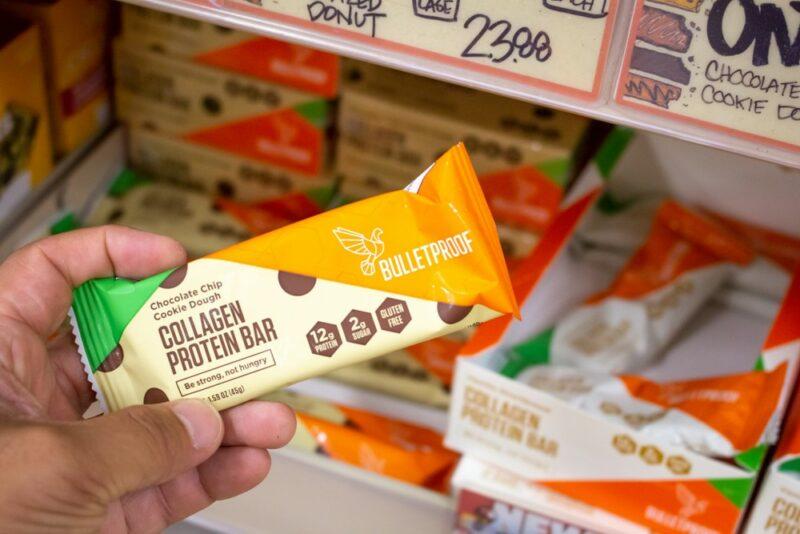
Not only are protein bars inferior to real food, but you’re generally eating a protein bar instead of something more natural.
Doing so every so often isn’t a huge problem. There’s space in our diets to make inferior food choices sometimes.
Things are different if you’re regularly eating protein bars instead of full meals or healthy snacks. Doing so often means that you’re losing out on nutrients, plant-based compounds, and fiber.
Seriously, it doesn’t matter how well-designed a protein bar is, it will never have the same balance of nutrients and macronutrients that you get with a full meal.
There Are Too Many Additives
We can’t forget about the additives either. These are used to give protein bars the flavor and texture that customers are looking for.
They can also get ridiculous fast. Just glance at the ingredients list for one of the Slim Fast meal bars and you’ll see what we mean. It’s huge. Most of those ingredients seem safe enough, but the long-term effects of eating additives like this regularly isn’t known.
Also, remember the natural flavors we talked about before? These are often included in processed foods and sound pretty benign. Yet, the term just means that the flavors were originally derived from nature. This doesn’t mean they’re still in their natural form.
There may have been considerable processing along the way, including the use of chemicals.
They’re Often High In Sugar Or Salt
While some protein bars are low in sugar, many others aren’t. Consider the Luna bar that we mentioned earlier. The lemon zest version contains just 8 grams of protein per serving – and 9 grams of sugar.
Other products might ramp up the sodium content at the same time, giving you 200 mg of sodium per serving or perhaps even more.
While sodium is an important electrolyte, it’s only healthy if you don’t consume too much of it. Unfortunately, sodium is used extensively in processed food, so it’s easy to overdo it.
You can avoid the sugar and salt by paying close attention to the ingredients labels for your protein bars. Doing so for every single protein bar is a pain, but this is much better than putting your health at risk.
Can Cause Side Effects
Some people experience side effects from protein bars, including bloating, stomach cramps, gas, and diarrhea.
These side effects sometimes come from FODMAPs in the protein bars. Other times, they’re linked specific ingredients that you’re sensitive to, such as whey or wheat.
Protein bars often contain a dozen or more ingredients, so it can be tricky to work out exactly where the problem is coming from.
If you do get side effects, it might be worth trying an entirely different type of protein bar. Keep an eye on the ingredients label too and look out for added fiber, gluten, and sugar alcohols. These are all common causes of side effects.
Can Protein Bars Replace Meals?

Replacing a meal each day with a protein bar or shake is often used as a fast way to lose weight. But, is this a safe practice?
From one perspective, yes, the right protein bar can stand in the place of a meal, giving you plenty of protein and nutrients. The bar won’t be as filling as a full meal, but it is much more convenient and should be lower in calories.
This approach can lead to weight loss, especially in the short term.
However, protein bars rarely work well in the long term. Part of the problem is that they’ll often just satisfy you for an hour or two. They might last a little longer than that, but you’ll still probably be hungry again before your next meal, which can easily lead to overeating.
Most protein bars aren’t even designed as meal replacement products, so they mightn’t be giving you all the nutrients you need. If you start replacing one or two meals per day with bars regularly, you could easily end up nutrient deficient.
Plus, as we mentioned before, protein bars tend to push real food out of your diet. This is concerning, as even the healthiest protein bar will pale in comparison to a full meal.
Using protein bars as snacks instead of a meal replacement tends to be much healthier. However, you’ll still need to choose the product well to make sure you get enough nutrition without overdoing it on calories.
If you do want to use protein bars instead of a meal, look for ones that contain at least 15 grams of protein and have plenty of nutrients. Even then, it’s best to see this as an every so often approach, rather than something to rely on daily.
How To Choose The Best Protein Bars
This balance of benefits to risks makes protein bars seem like a horrible idea. However, some products are much better than others.
If you choose high-quality nutritious protein bars and don’t overdo it, you should see some benefits. While there’s an insane amount of products to choose from, finding healthy versions doesn’t need to be difficult.
Here are a few ways to find the best protein bars for your needs.
Pay Attention To The Protein Content
Some protein bars are shockingly low in protein. To get around this issue, double-check protein bars to see exactly how much they offer.
Think about your protein needs as well. In most situations, 15 to 20 grams of protein is often plenty. This should be enough to keep you satisfied between meals or to help with your muscle development.
Bars with 25 to 30 grams of protein are mostly used by people who work out intensely. You might use these bars as a meal replacement too, although they’re not as satisfying as you might expect.
Don’t Forget About Fiber
It’s helpful to get at least some fiber in your protein bars too. At least 3 grams per bar is good, while 5 or more is even better.
However, be cautious if the bar claims to offer 10 grams of fiber or more. Such products often simply add in isolated fiber, which may not be as helpful as natural fiber and can lead to side effects.
Avoid Additives And Ultra-Processed Bars

The healthiest bars tend to rely on natural whole food ingredients and keep processing to a minimum.
The ingredients label will help you out here. Look for products that use familiar ingredients and avoid preservatives as much as possible.
Organic brands can be a useful starting point, as companies that focus on organic ingredients often have a natural foods focus and avoid additives as much as possible.
Watch Out For The Sweeteners
The sweetener used makes a difference to health as well.
Some brands rely on sugar, often to excess. This is never good if you’re trying to improve your health.
Others keep the sugar content low, but rely on sweeteners instead. Sometimes this involves using natural sweeteners, while other times artificial sweeteners are used instead.
It’s important to pay attention to the sweeteners used and how your body reacts to them, as they all have some downsides. The best products will keep the sugar and sweetener content to a minimum.
Make Your Own
The best way to have healthy protein bars is to prepare them yourself. This way you know exactly what is in the bar and can tweak the ingredients as needed.
However, you will need to choose the recipe carefully. Many homemade protein bars are healthy, but some go overboard on the sweeteners and don’t give you enough protein.
Do You Need The Protein?
There’s one other area to think about – do you really need more protein? It’s easy to fall into the trap of thinking that protein is always going to help you.
That’s not the case, though. If your body is already getting all it needs from your diet, more doesn’t do much at all. It helps with fullness, sure, but that’s only helpful to a point.
When you’re deciding about protein bars, it also helps to think about what you’re hoping to achieve.
Are you working out regularly and trying to gain muscle? If so, extra protein could help you meet your goals. But, only to a point. There’s still an upper limit to how much protein your body will use for muscle development.
Are you trying to lose weight? Protein bars may help, as they keep you fuller than a carb rich snack will. However, they could lead to you consuming too many calories, which would promote weight gain, rather than weight loss.
Before you turn to protein bars regularly, it’s worth looking at a protein calculator or two and working out how much protein you’ll need to meet your goals. Doing so will give you the clearest picture of whether protein bars are worth the effort or not.
Final Thoughts
Some protein bars are healthy, offering a decent amount of protein and nutrients, while avoiding additives and keeping the sugar content low. Others aren’t. Many products on the shelves are highly processed and less nutritious than they sound.
Plus, even if you find the best possible protein bar, it’s never going to be as good for you as real food. These patterns suggest that protein bars are best used occasionally. They’re fantastic as emergency snacks, but it’s much better to turn to natural ingredients and cooked meals whenever you can.
Related Content
- Related: Are Quest Bars Good For You?
- Related: Are Clif Bars Good For You?
Frequently Asked Questions
Can You Eat A Protein Bar As A Meal Replacement?
Many protein bars can be used to replace a meal, as they contain at least 15 grams of protein. The protein helps to keep you satisfied and get through to the next meal.
The best meal replacement bars also contain a decent number of nutrients. This helps you to hit your nutrient targets even if you’re replacing a full meal with a protein bar.
Protein bars vary dramatically, so it’s important to look closely at the ingredients label to find the right bar for you. Look for products with plenty of protein that keep the sugar and additive content low.
Is It Okay To Eat Protein Bars Daily?
Eating a protein bar, or even multiple protein bars, per day can be completely safe. This is particularly true for minimally processed products.
This is only true if you’re getting enough nutrients in your diet. If you often consume protein bars instead of meals, you could easily end up deficient in key nutrients.
When Should You Eat Protein Bars?
The timing for protein bars depends on what you hope to gain. If you’re focusing on muscle development, eating a protein bar after your workout may be best, as this is when your body needs the protein.
If you’re looking at weight loss instead, you’d probably eat the protein bar instead of a meal. Some people also use the bars to try and gain weight instead. In this case, you might have the bar between meals.
Are Protein Bars Good For Kids?
Protein bars are generally safe for kids, as long as you choose a reliable brand. However, most kids aren’t going to need protein bars. They should be getting plenty of protein from their diets already.
Plus, too much protein can easily be harmful for growing kids. It’s much better for them to focus on real food anyway, as this is a better source of nutrients and plant-based compounds.
In rare cases, kids may need extra protein, which could make protein bars a good move. But, in this situation, their doctor should be involved so you can be sure that the bars are the right choice.
Are Protein Bars Good For Breakfast?
Protein bars and protein shakes are popular for breakfast, partly because they’re a fast and easy way to start the day. They can work well too, giving you enough protein to keep you satisfied until your next meal.
Still, protein bars aren’t an ideal breakfast. They’re not nearly as satisfying as a full meal and mightn’t give you enough energy. It’s often better to turn to a protein-rich breakfast instead. This type of breakfast will generally be more nutrient packed as well.



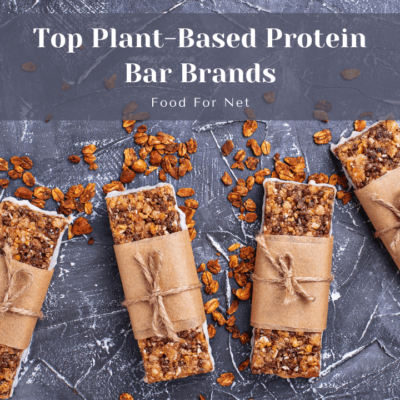

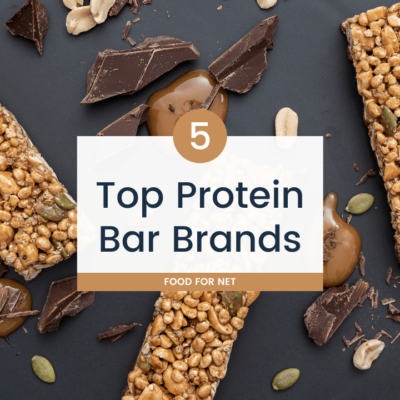

 Are Plantains Good For You?
Are Plantains Good For You?
Recently, I started working out more and eating healthier, but I think I’m lacking some nutrients, so I’m interested in learning about protein bars. I found it interesting when you explained how protein bars are accessible and an easy way to get extra protein, so I’ll look into them for sure. Thanks for the information on protein bars and their easy-to-carry benefits.